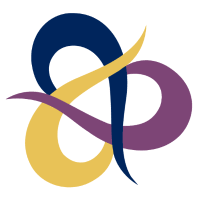Objectives of the Assignment
The main objective of this assignment is to enhance the capacity of Community Based Organizations and other relevant key stakeholders involved in garbage collection to effectively collect and dispose solid waste within these LGAs to bring about improved cleanliness and environmental management for Morogoro and Iringa Municipal councils with zero-waste objectives.
Given that Waste Management Plans are already in-place in both Morogoro and Iringa, this assignment is a continuation activity pursuant to recommendations made in a Waste Management Plans assignment in 2018.This assignment will involve the following:
- Undertake organizational development/capacity development needs assessment of the Community Based Organizations, providing training as needed, and documenting the gaps identified and the resources required to address them.
- Build and improve the capacities of CBOs on the Solid Waste Management Guidelines and with sorting technologies so that garbage collected is recyclable and be sold to recyclers instead of adding more load onto dumpsites.
- In collaboration with Municipal Environmental officers, link the CBOs that collect garbage to businesses that collect and recycle plastic waste, and potentially others involved in composting for agricultural purposes.
- C reate linkage between Business Development Service Providers (BDSPs) and CBOs that are involved in solid waste management to strengthen business operations of CBOs and their profitability in this area.
- Draft service improvement plans, that propose funding mechanisms to improve the delivery of solid and liquid waste collection and disposal, as well as the recycling of the same.
Background
The Tanzania Enabling Growth through Investment and Enterprise Program (ENGINE) is a four-year USAID-funded Feed the Future Tanzania activity that aims to streamline and enhance many of the regulatory, informational and financial channels that encourage domestic and foreign investment in the southern mainland agricultural regions of Mbeya, Morogoro, and Iringa, and in Zanzibar.
ENGINE works at the district Local Government Authority (LGA) level, using a broad-based approach to engage with district councils, private sector associations, business development service providers, financial institutions and small and medium enterprises. The program’s activities are divided into three main components:
- Implement policies for growth. Build the capacity of the private sector to effectively dialogue with the government to set the policy agenda and improve the capacity of the public sector to implement policies.
- Equip businesses for growth. Strengthen SME capacity and foster the growth and capacity of a sustainable market for business development services (BDS) in Tanzania.
- Access to finance for growth. Broaden access to finance for small and medium-sized enterprises (SMEs) in all sectors, especially women and youth entrepreneurs and those working within agricultural value chains (excluding primary producers), to facilitate increased business viability, growth, and investment.
Background:
Local Government Authorities are responsible for the collection and disposal of solid and liquid waste. They frequently charge fees or taxes to provide these services, and often use commercial vendors-Community Based Organizations (CBOs) as sub-contractors to assist with service delivery. As in many countries, the issue of solid waste collection and disposal is one of extreme interest to community members and therefore local governments, as poor performance in this area can have adverse effects on sanitation, disease control, public health, hazardous materials, environmental quality of life issues such as odor, appearance, animal control, and more. These factors, in turn, can have adverse impacts on the business environment (viability, profit, etc.) and the investment climate.
Through Expert Volunteers’ work in Morogoro Municipal Council and Iringa Municipal Council, ENGINE has supported the development of Solid Waste Management Strategies and Action Plans through which zero-waste objectives have been set. Community Based-Organizations (CBOs) are the key stakeholders who have been engaged in collection and disposal of solid wastes even though CBOs are not well-skilled in effective methodologies, as well as implementing guidelines. Therefore, for effective implementation of recommendations and action plans provided from previous assignments, Community Based Organizations (CBOs) in Iringa and Morogoro need to be capacitated in both effective ways of handling waste, as well as abiding to guidelines that are in place.
Problem Statement
Local Government Authorities (LGAs) in Tanzania often lack resources to effectively collect and dispose of solid and liquid waste, including trash, food waste, vegetation (green waste), and hazardous materials, and to recycle waste. Further, business customers receiving solid waste removal services report significant problems. Existing waste management/ disposal and recycling policies, by-laws and existing regulations require review and reform. Additionally, lack of well skilled waste management staff which is the case for Morogoro and Iringa LGAs, raise a need for capacity building in solid waste collection techniques, garbage fees collection strategies and recycling of solid waste.
Tasks
The Expert Volunteer will complete the following tasks:
- Attend an orientation meeting with ENGINE Program staff;
- Accompanied by relevant ENGINE staff, attend an introductory meeting with the Local Government Authorities’ leadership and technical staff to discuss the Expert Volunteer assignment and to review its objectives;
- Facilitate a consultation workshop with a solid and liquid waste, and recycling technical working group (comprised of CBO leaders, Street and Ward leaders, BDSPs and LGA staff) to elicit their input/feedback on the prioritization of tasks to achieve rapid results in evaluating SWM guidelines and current SWM practices to provide information and training needed on best practices in solid and liquid waste management, landfill management, and recycling, and to propose improvements to create a strengthened business-enabling environment;
- In consultation and collaboration with technical working group:
- Review solid waste, and recycling arrangements and practices and propose reforms to the same.
- Engage private sector stakeholders in a public private dialogue (PPD) to explore options for improving private sector participation in solid and liquid waste, and recycling operations and management. Such options could include investigating external funding for capital equipment (trucks, scales, etc. through public private partnerships (PPPs), leasing or equipment loans and capacity building for for-profit, private companies or Community Based Organizations (CBOs), including efforts to promote a market for local users of recyclable raw materials who can add value by turning these recyclables into valuable products, including compost for agricultural purposes.
- Prepare a Solid and Liquid Waste, and Recycling Service Improvement Plan that proposes next steps to implement strengthening of the business enabling environment through improved waste and recycling management and by increasing the capacity of Community Based Organizations involved in garbage collection;
- Analyze CBO’s needs and recycling status and make specific recommendations related to changes needed and funding sources to implement the above-mentioned Service Improvement Plan, including such options as external grant funding to create incentives to divert recyclable and compostable waste from landfills;
- Create Communication and Education plan, develop communication and education materials for CBOs and conduct TOT among CBOs members and LGA’s staff
- Facilitate and support LGA to review CBOs contracts incorporating observations/ recommendations for service delivery improvement provided during PPD meeting.
- Facilitate and support LGA to prepare CBO’s management procedures for both CBOs engaged in garbage collection and revenue collection with relation to by law enforcement.
- Develop guides for reducing wasted food to share with households and restaurants.
- Write a Final Report summarizing findings, conclusions and recommendations related to the assignment and including the impact on women and youth, as well as a discussion of the LGA’s solid and liquid waste, and recycling-related organizational development challenges and proposed solutions;
- Provide exit debriefings to LGA leadership (including the local technical working group), ENGINE, USAID and other relevant anchor institutions/key stakeholders including discussions of the LGA’s organizational development challenges and proposed solutions.
Deliverables
The Expert Volunteer will submit the following deliverables:
- Minutes/notes of the meetings/training/workshops described in Tasks B, C, and D above and other project meetings.
- Documents developed with the technical working group (Task B, C & D above)
- CBO’s Capacity building facilitation report and action plan, including needs assessment report.
- Training Materials that would be used by SMW stakeholders to sustain the skills gained.
The Expert Volunteer will submit a Final Trip Report to the ENGINE Program that includes the following sections:
A.Introduction;
B.Methodology;
C.Findings, Conclusions, and Recommendations related to the Local Government Authority’s needs in the area of solid and liquid waste and recycling management and policy;
D.Discussion of assignment objectives with reference to women and youth, and how they were met or why they were not met.
Additionally, the Expert Volunteer will provide exit debriefings (Task F above).
Expert Volunteer Qualifications
The ideal Waste Management Specialist Expert Volunteer will have the following skills and qualifications:
- 5+ years of experience working within local government, preferably with a role in drafting, reviewing/reforming, and implementing policies;
- Experience with public policies related to solid and liquid waste and recycling management;
- University degree in sanitation (solid and liquid waste) management, engineering, policy, public administration, or another relevant field;
- A proven track record of organizational development;
- Experience in stakeholder engagement, consultation, and facilitation;
- Training skills, including participatory training in group settings. Training and consultation experience utilizing a translator or interpreter is an added plus;
- Self-motivated, proactive, detail-oriented, mature, professional team player, who is a strong people person and communicator, with good inter-personal skills;
- Ability to address issues, challenges, questions, and concerns in a professional, respectful, logical, and timely manner;
- Works well in a multi-cultural setting;
- Well-developed writing skills in English and the ability to express one’s self clearly and concisely;
- Good computer skills in MS Office.

